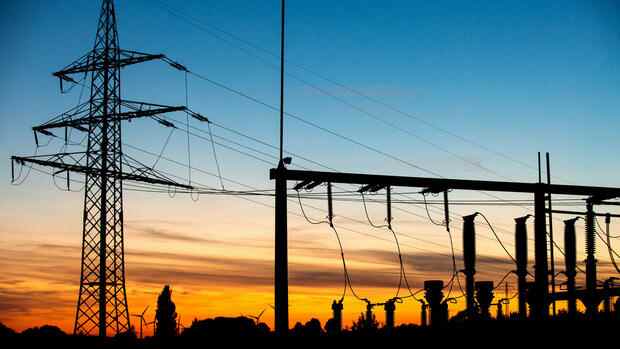The German Association of Towns and Municipalities sees a need for action, particularly with regard to the supply of electricity and drinking water. “We need a national emergency power reserve and, for example, emergency wells for drinking water supply, with which drinking water can be produced without being dependent on a network,” said managing director Gerd Landsberg of the Handelsblatt. “Food and medicine stocks should also be created nationwide.” That doesn’t happen overnight. “But we need a booster for civil protection.”
Landsberg justified his demand with the fact that sabotage of critical infrastructure could have “devastating effects”. This applies in particular to a longer power outage. “Then almost nothing works: no drinking water supply, no grocery store, no gas station,” said the head of the association of cities. There have been protection concepts for energy and water supply as important sectors of critical infrastructure for years. “But acts of sabotage, such as we have now experienced in the Baltic Sea, represent a new dimension,” said Landsberg.
In Germany, it is fundamentally the task of the companies and authorities that operate critical infrastructure to ensure the safe and reliable operation of their systems and facilities. When it comes to cyber security, for example, they are in contact with the Federal Office for Information Security (BSI). When it comes to espionage risks, they receive warnings from the Office for the Protection of the Constitution.
Top jobs of the day
Find the best jobs now and
be notified by email.
According to a definition by the federal government, critical infrastructure includes all “organizations or facilities of major importance to the state community, the failure or impairment of which would result in lasting supply bottlenecks, significant disruptions to public safety or other dramatic consequences”. This can be a sewage treatment plant, a private energy supplier, a food producer, a hospital, a telecommunications company or a power line.
253 incidents reported since the beginning of the Ukraine war
Domestic politicians in the traffic light coalition also see Germany as inadequately armed against acts of sabotage and attack scenarios. The SPD interior expert Sebastian Hartmann told the Handelsblatt: “Of course, we also have to set up and maintain a national emergency power reserve for blackouts with a decentralized mobile national emergency power reserve for powerful fire brigades.”
The Greens member of the Bundestag, Irene Mihalic, also sees a need for action and explains this by saying that war today could mean a “more comprehensive threat” than 50 or 60 years ago. “Building back-up infrastructure, such as emergency power and emergency wells, is extremely important,” Mihalic said.
>> Read also: Next target Power supply? Concerns about infrastructure sabotage are growing
The FDP MP Sandra Bubendorfer-Licht points out that the previous precautionary and location planning in the drinking water emergency supply still comes from the Cold War. “This important topic has been neglected in Germany for far too long.”
It was therefore right to realign and strengthen the Federal Office for Civil Protection and Disaster Assistance (BBK) last year. But that alone is not enough for her. In view of the challenges, the federal, state and local governments must now pull together.
In general, however, federalism applies to protective measures. The federal states are responsible, and the federal government supports them – for example through exercises by the BBK, in which crisis scenarios such as hacker attacks on state institutions are to be played out. Many operators of critical infrastructure facilities are privately held companies. But they also have obligations and must report major IT disruptions.
According to the Federal Ministry of the Interior, 830 faults have been reported by Kritis operators in the past two years. Between the start of the Ukraine war on February 24 and September 9, 253 incidents were reported.
“Kritis umbrella law” is intended to prescribe minimum standards for critical infrastructures
The ministry emphasizes that not all disruptions are due to attacks, data theft, industrial espionage or sabotage. “Some of it is due to technical failure of hardware or software as well as human error.”
From the point of view of the Greens interior expert Mihalic, it is all the more urgent to invest again in “precautionary civil protection”. It is important here to further develop the BBK into a central office for civil protection “so that we do not have to react to possible crises with regionally fragmented structures”. In addition, a “Kritis umbrella law” is finally needed to legally establish minimum standards for critical infrastructures.
The SPD politician Hartmann pointed to the coalition agreement. In it, the protection of critical infrastructures was given “particular importance”. The planned “Kritis umbrella law” should help to secure the “physical structures”.
The Greens in particular have been calling for such a law for some time, which should also regulate questions of IT security. In July, Federal Interior Minister Nancy Faeser (SPD) announced that she would soon present key points to the cabinet. So far this has not happened.
More: “The threat is growing” – How endangered is the critical infrastructure in Germany
